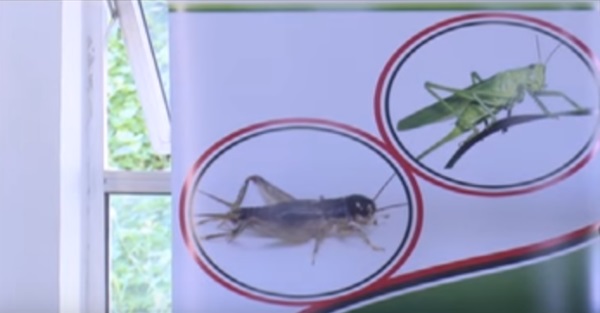Food and Nutrition Scientists at Makerere University have embarked on a project to add value to crickets and grasshoppers which have been proved to be highly nutritious and beneficial to children as the proteins are essential for their physical and mental development. They can also be added to animal feeds. Dr. Dorothy Nakimbugwe together with other scientists at the university is behind his project. "So insects are very high in protein. We compared the conventional sources of protein which is chicken, fish, and beef with insects including crickets and grasshoppers and we found that the percentage protein on dry matter basis of those insects is comparable to that of the conventional sources fish, poultry, and beef. But also what we found is that amino acid profile: the building blocks in the protein that build our bodies are very well balanced. vitamin A which is good for good eyesight, vitamin E which is an anti-oxidant, vitamin D which is good for building strong bones and teeth." Said, Dr. Dorothy Nakimbugwe – Project Manager.
Dr. Nakimbugwe said chicken feeds that have an ingredient of crickets are more nutritious than the fish or mukene. "The layers on insect feed continued laying longer after the layers of conventional feed stopped laying. And the eggs were very high quality; the York was yellow." Rearing of protein-rich edible insects; the crickets and grasshoppers are started in Uganda and Kenya. “We hope that soon we will be able to make tons but right now we are just making grams of insects that are ready.” Said, Komi Fiaboe – Researcher. “There are companies in Canada, in the USA, in Europe that actually commercially are producing insects and incorporating them in food, in snack bars, in chocolate, there are also incorporating them in all sorts of food and bread. Finland recently launched a bread that is containing crickets and they were counting them; 12 crickets per loaf and it was selling like hot cake.” State Minister for Agriculture Christopher Kibazanga launched the project with support from the Swedish government. “And this is what is expected of a great university like this one. Because like this one, it is very important in the soil formation.” Said, Christopher Kibazanga – State Minister for Agriculture.
According to Dr. Nakimbugwe, grasshoppers and crickets have a higher multiplier effect. “In a single laying if you compared to how a hen would lay one eye a day. An insect when it lays eggs; it will lay between 300 – 500 eggs a day and it will do the same the following day.” In Kenya and Uganda, no commercial insect production for food has been taken. Yet the demand for insects like grasshoppers and crickets is high. “So if the Ugandans don’t want to eat crickets, nobody is going to force them. We will export the crickets to the people who want to eat them and the farmers will still get money…” About 2 billion people worldwide consume insects with grasshoppers featuring high on the list. However, in some African cultures, eating insects like these was considered a taboo. Scientists believe that adding insects to the food menu will bridge the nutritional gap. “We want to be able to produce and process and make grasshoppers available to the public all year round.”

